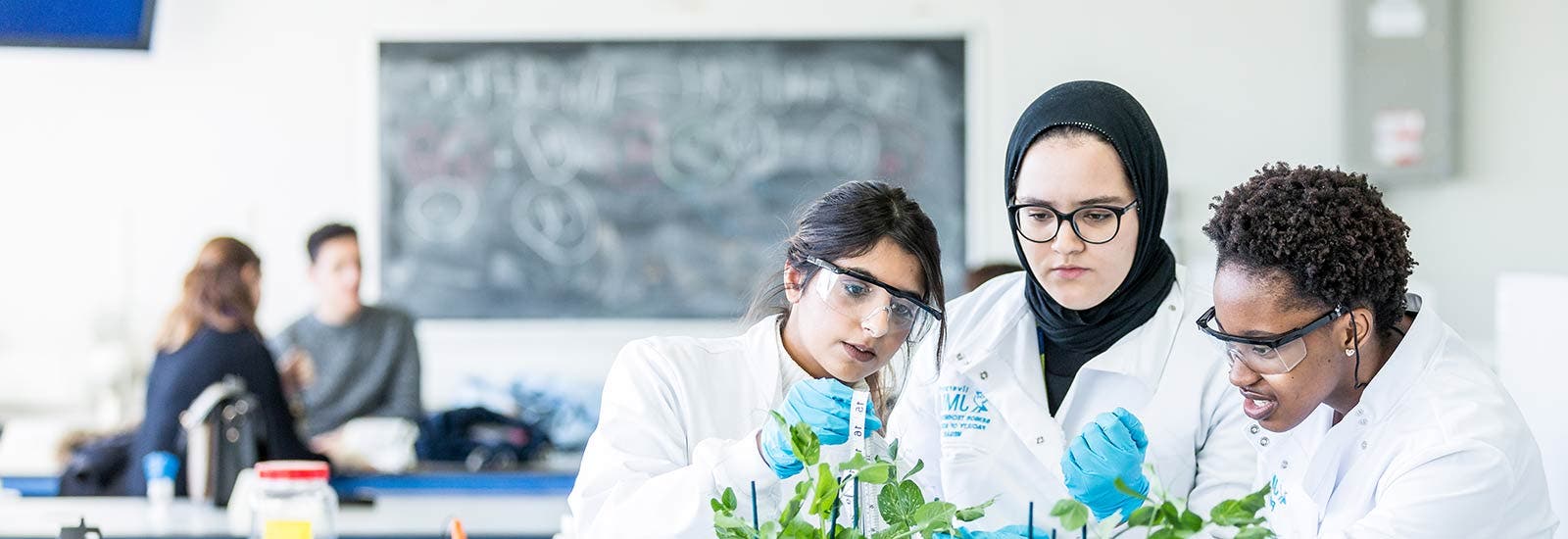Extended International Foundation Year in Engineering, Computing and Life Sciences
Learn about studying Engineering, Maths and Science before your degree.
Progression degrees
Successful completion of this programme leads to a range of undergraduate degrees at LJMU, subject to achieving the required grades.. As well as achieving the grades necessary, you will be required to take an Academic English Studies (AES) test at the end of your course. Once you successfully complete this, you will be ready to start your degree at Liverpool John Moores University.
Along with being invited to attend a graduation ceremony organised by the International Study Centre, students who successfully complete their pathway programme will be provided with a transcript and certificate. The award of any certificate is made in line with the Final Transcripts and Awards Certificate Policy and the Certificate and Transcripts for Students on Collaborative Programmes Policy, which are available via the Policy Centre.
| Degree Programme Name | Award | Overall Grade | English Grade | Grade Module |
|---|---|---|---|---|
| No Results | ||||
Must complete a portfolio comprising of 5 – 8 drawings to be submitted by the end of May of the academic year:
- Architecture BA (Hons)
- Interior Architecture BA (Hons)
Must have studied Biology and Chemistry:
- Biochemistry BSc (Hons)
- Biomedical Science BSc (Hons)
Must have studied Biology:
- Biology BSc (Hons)
- Psychology BSc
- Wildlife Conservation BSc (Hons)
Must have studied Chemistry:
- Chemistry BSc (Hons)
Admissions Process
Applications for MPharm Pharmacy will be assessed, and qualifications will be checked to see that they meet or are predicted to meet the University's entry requirements.
Applicants that meet the initial criteria will then be sent an assessment by email with full instructions and a deadline for submission will be sent via email. Applicants who do not pass the assessment will have the opportunity to retake the assessment.
Shortlisted applicants will be invited to an interview and offers will be made to successful applicants.
In order for students to meet the entry requirements for MPharm Pharmacy at LJMU, they must complete:
- Assessment
- An interview – which must be passed in order to progress on to MPharm Pharmacy
- Undertake Fitness to Practise checks – as required by law
- Obtain a Criminal Records Check (from your home country)
- Obtain a Letter of Good Character (written in English)
Applicants should review the communication from the International Admissions Office at LJMU who will contact applicants directly with all relevant forms and paperwork. Further information is also available on the fitness to practise web pages.
How to apply
See how to apply for a programme at the International Study Centre and view the documents you need to provide with your application.
International Study Centre
LJMU International Study Centre offers a range of pathway programmes to progress to undergraduate and postgraduate degrees at LJMU.
Prepare for Success
Join our online preparation course at no extra cost, so that you are ready to thrive academically and culturally in your new environment.
Join us today
Our student enrolment advisors are available to answer your questions and help you with your application. We can’t wait to meet you.
